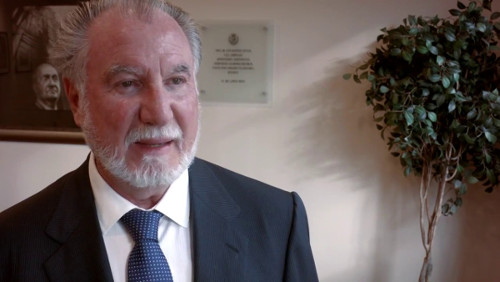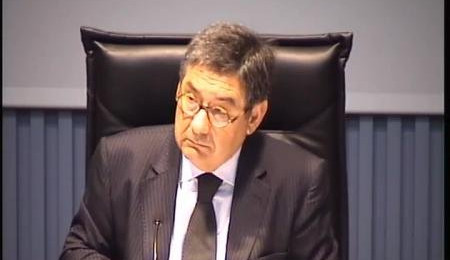The academicians José Luis Salido and José Manuel Calavia have participated in the 3rd Congress on Corporate Governance of Capital Companies
José Manuel Calavia, professor of Commercial Law at the University of Barcelona and full academician of the Royal European Academy of Doctors-Barcelona 1914 (RAED), and José Luis Salido, professor at the University of Barcelona, full academician and secretary of the Board of Directors of the RAED, participated in the 3rd Congress on Corporate Governance of Capital Companies, organised by the Faculty of Law of the University of Barcelona and the Lawyer Association of Barcelona (ICAB). The sessions were held on 16 and 17 November at the ICAB headquarters.

Dr. José Manuel Calavia Molinero
Calavia moderated the first round table, which involved a discussion of the legal issues that generate the challenges of social agreements relating to the legal protection of minorities and pacts between partners, covering aspects such as entitlement to dividends, financing companies, the right to information of the partners and the challenge of abusive corporate agreements. Issues that nowadays are of capital importance and that are of great interest for both economic and legal operators. Participating in this debate were judge Bárbara Córdoba, lawyers and university professors José María Rojí and José María Soria and professors Rafael Guasch and Joan Jané.

Dr. José Luis Salido Banús
Salido, for his part, participated as a speaker at the third round table of the congress, on the remuneration of social managers. His paper dealt with the possibility or not of making compatible the functions of administrator of a company with work for others in the same one and the juridical nature of the bonds that this situation generates. In short, to determine the status of the matter in terms of the so-called “bond theory” after the reform of the Spanish law of Capital Companies. The academician concluded that “the compatibility between the position of director and a worker with an ordinary work contract is still possible, both in the opinion of the General Directorate of Registries and Notaries and the most recent jurisprudence”.



